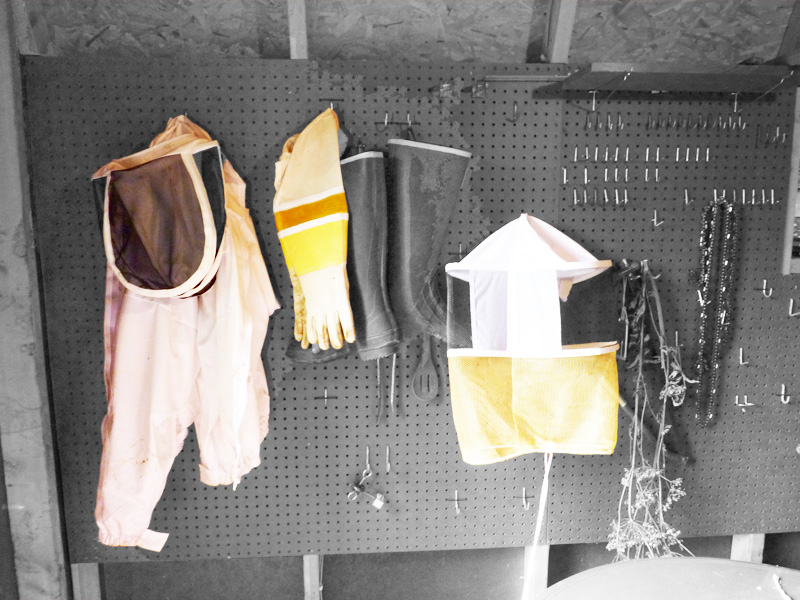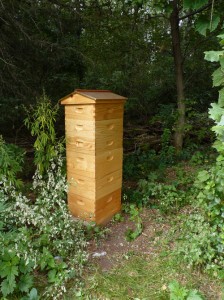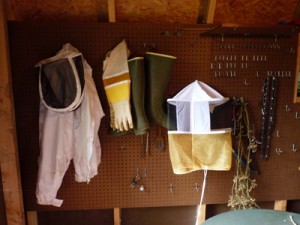Beltane Waning Flower Moon
After checking the parent colony with the queen excluder in, I found larvae in the top hive box. That’s evidence of the queen. That meant I shifted the middle hive box over to the new foundation and bottom board. A syrup feeder pail went on top of the new, child colony. This calms everything down and allows for a peaceful slow release of the queen tomorrow. Leaving the queen excluder on the hive box in which I discovered larvae, I put two honey supers on it and replaced the inner cover and the telescoping outer cover. The parent colony now has two hive boxes, one with a queen and brood, plus the other, lower box, which will get reversed on top in 7-10 days.
Tomorrow I’ll check the package colony for larvae a second time. If they have none, I’ll have to get another queen for them soon. If there is no queen in the hive, the lack of her pheromones turns on egg laying in the workers, but, since they’re not fertilized they produce only drones. Once a hive converts to worker egg-laying apparently you have to start over.
This has been a busy couple of weeks for the bees. Kate’s been making supers and frames and hive boxes, too. If the divide and the package colony take, things will calm down for a while until the honey flow ends. Then, there’s an end of the whole process I haven’t encountered. Honey.
Two more bags of composted manure on the leek/sugar pod pea bed, another on the sun trap and a lot of planting. The herb spiral has the herbs Kate bought Friday at Mickman’s. I also planted beets, mustard greens, fennel, onions and a pepper plant in the sun trap. The tomatoes and other peppers will go there, too. Those two beds, along with the other bed where I have green onions plants along with radicchio, beets from seed and thyme will be our kitchen garden for the growing season.
Kate did a lot of weeding, including the blueberry patches. It really makes a difference to have her focused on that aspect of gardening. She’s also in charge of pruning which has its on rules.
The leeks, onions, kale, chard, garlic, parsnips, butternut squash, other beets and carrots will also be available during the growing season of course, but most of these will get canned or dried or frozen for the winter.
I would not like to do the cost accounting on these vegetables and the fruit because the two fences and Ecological gardens have created a lot of sunk costs. It will take years for them to zero out the costs, more years, I imagine, than we have left in this house. In our case, of course, that’s not the big point. The big point is a more sustainable and healthy lifestyle and in that regard the cost accounting has already tilted in our favor.


 the new packages takes place as soon as possible after I pick up the bees from Nature’s Nectary outside Stillwater. They may wait a day, but not more.
the new packages takes place as soon as possible after I pick up the bees from Nature’s Nectary outside Stillwater. They may wait a day, but not more. the colonies. I’m also going to check out better ways to have a bee proof environment in which to extract honey. It was pretty bad last year.
the colonies. I’m also going to check out better ways to have a bee proof environment in which to extract honey. It was pretty bad last year.